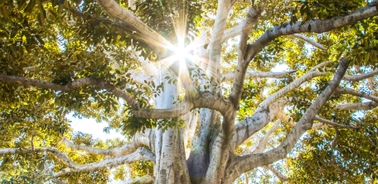Ancient Wisdom, Modern Healing: Mental Health Lessons from Indigenous Cultures

is the secret to mental well-being rooted in tradition?
How do Indigenous people measure well-being? Well, very differently from how the West does. Of course, there are hundreds of different Indigenous communities worldwide, all with unique outlooks, but similar values and beliefs appear in many of their teachings.
the true meaning of well-being
Take the Aboriginal people from Australia, for instance—one of the longest-living human cultures on earth. An OECD assessment on well-being found that the Australian capital, Canberra, ranked first in the world based on various metrics, including income, housing, education, employment, service provision, livability, and more.
However, when asked what they considered key to their well-being, Aboriginal people listed values that weren’t even on the OECD’s radar. For them, the keys to happiness and contentment were far more intangible, with the top five answers ranking as follows:
Spirituality
Connection to their Aboriginal history and culture
Knowledge of their family history
A deep understanding of their rights as Indigenous people
The ability to share with family and friends
So, what can we learn from such a different way of gauging well-being and, by extension, our mental health? Are we using the wrong yardstick?
Indigenous knowledge and mental health
The Anishinaabe Medicine Wheel is a sacred teaching tool that originated from the Ojibwe, a group of Indigenous people in North America. It represents the balance between the mental, physical, emotional, and spiritual aspects of life. According to ancient teachings, health is considered harmony among all these parts, not just the absence of illness.
To an extent, we understand this. Numerous studies prove the benefits of psychology and staying in touch with our emotions. We also know the need for nutritious food and physical exercise, and we accept that being in nature is good for us.
Unfortunately, we operate in economic and social systems that don’t support holistic health. Instead, they focus on the material, the individual, and the quick dopamine hits. But science is catching up, finally providing empirical backing for the teachings Indigenous communities have always known about improving mental health.
A true connection to nature
The Yup'ik, the Indigenous people of Alaska, believe that being out of sync with nature causes spiritual and emotional distress. Numerous studies support this by proving the positive influence nature has on our mental health: for example, did you know that being outdoors reduces cortisol levels?
From early childhood, we’ve understood that spending time in nature is good for us, and we may very well live active lifestyles that often take us outdoors. But are we deeply in sync with the natural world in the way Indigenous people are? Are we connected to the seasonal changes, natural cycles, and the flow of the earth?
Imagine a re-engineered world that’s in sync with nature instead of one that actively destroys it. No small feat, indeed. But while we collectively work towards that ideal, maybe we could start with something as simple as slowing down, appreciating nature’s simple joys, and taking care of the natural environment around us.
The role of elders and knowledge keepers
In Canada, the Inuit place special value on their Elders. They’re seen as essential in passing down stories and traditional knowledge, guiding mental health practices, and offering wisdom on dealing with life changes. Indigenous Elders also facilitate talking—or healing—circles and share traditional practices that support emotional and spiritual well-being.
In many Western countries, seniors are not seen as integral to well-being. While many grandparents are present in their families, others are disconnected and in care homes. Generational knowledge goes largely untapped, and with it, all the possible benefits for our mental well-being.
The importance of ceremony
Sweat lodges, smudging herbs like sage, and vision quests are all spiritual practices that the Cree use to cleanse their spirit, restore balance, and heal from emotional or mental distress.
Studies have proven that spiritual ceremonies affect us positively. Any ritual observance—including those practiced through a chosen religion—can boost our feelings of well-being. As individuals, we can create our own ceremonies and rituals, too. For instance, you could say certain positive affirmations when you wake up in the morning, or take up a daily gratitude practice. The more personal the ceremony, the more powerful it will be for improving your mental health.
Community living
The West places a high value on individualism. Capitalism underpins a belief in the power of personal agency; meanwhile, our families are nuclear and most of our interactions, digital. It often leads to loneliness, a big cause of depression and anxiety today.
Feeling supported and connected to each other and strengthening our social bonds are great supports for mental health. Indigenous people understand the power of togetherness. In fact, the Navajo see healing not as a personal journey but as something that involves the whole community. Ceremonies like the Blessingway—where family, extended relatives, neighbors, and friends all participate—help restore balance in relationships while reinforcing collective well-being.
Shift your perspective
Indigenous perspectives on mental health give us profound insights that challenge the Western focus on individualism, material success, and clinical treatments. These cultures remind us that true well-being is rooted in balance—between mind, body, spirit, community, and the natural world. Through Indigenous wisdom, we learn to see mental illness as the communal, systemic challenge it is, rather than an individual failing that must be ‘fixed’ in isolation.
